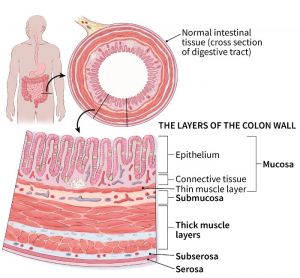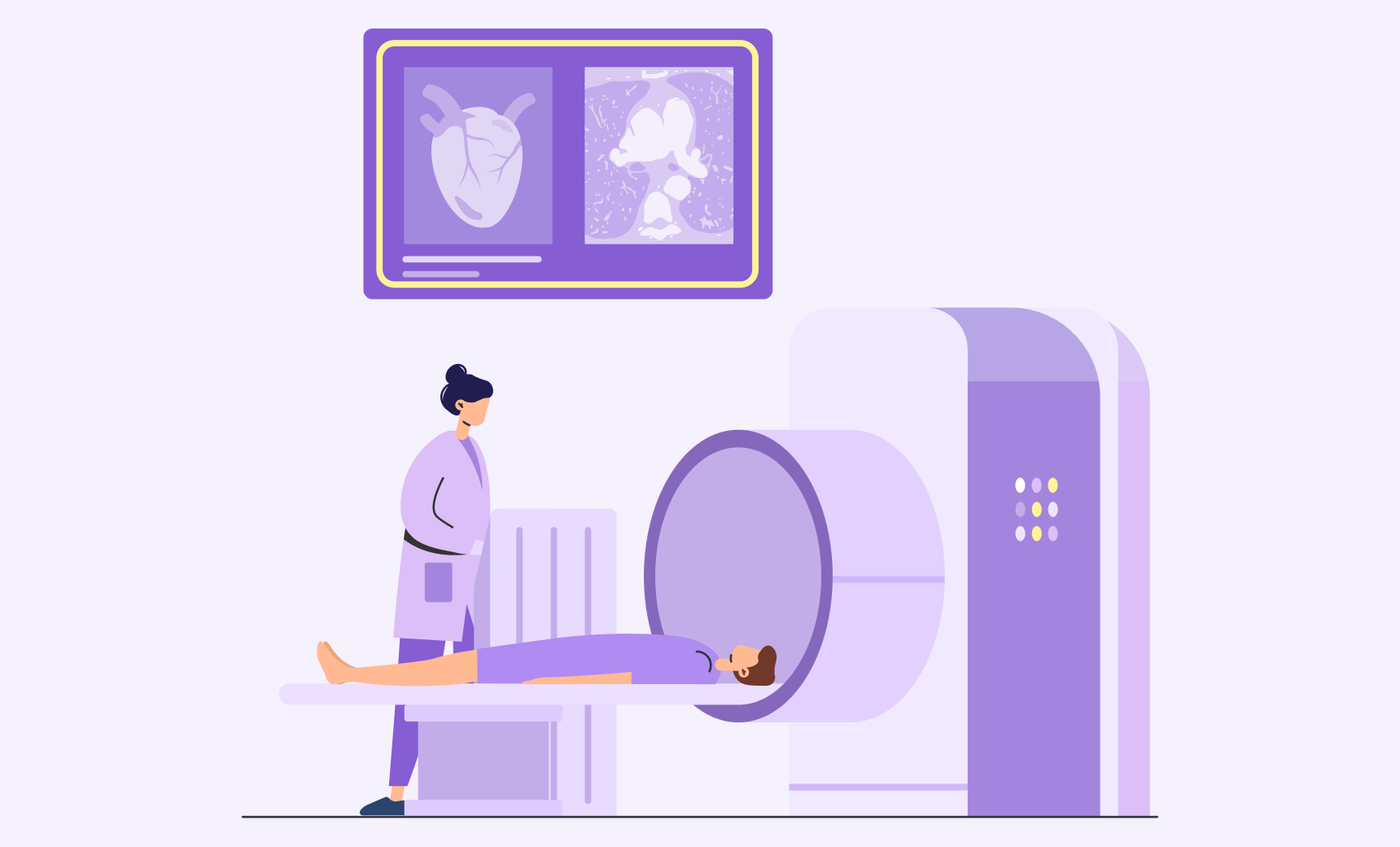
Let’s talk about Colon Cancer

The tragic and unexpected loss of the Black Panther star, Chadwick Boseman, makes it worth discussing the importance of colon cancer screening and how preventive measures can save lives. Medical abnormalities about the Gastrointestinal tract can be embarrassing for many. They may contribute to psychological conditions such as anxiety and depression. In this blog, we’ll be highlighting essential facts regarding colon cancer and dive into some crucial details worth remembering for future reference.
Facts and Stats
The GI tract consists of the mouth, esophagus, stomach, pancreas, gallbladder, liver, small intestine, appendix, and large intestine (aka, colon) and rectum. The function of the gastrointestinal tract is to aid in digestion and nutrient absorption. A defect in any section of the GI tract corresponds to a disease of that particular section. For example, inflammation of the appendix, pancreatitis means inflammation of the pancreas, colitis means inflammation of the colon, etc.
The histology of the GI tract is lined with epithelial cells. Epithelial cells are fast-growing cells prone to mutations that can grow abnormally into polyps, turning into cancer.

According to the World Cancer Research Center, colorectal cancer is the third leading cause of cancer-related deaths in men and women and the second most common cause of cancer deaths when combined in the United States. The data shows to cause about 53,200 deaths during 2020.
As staggering a number like 53,200 is, the good news is that the death rate from colon cancer has been dropping thanks to early screening and better treatment therapy.
Symptoms
Colon cancer symptoms range from abdominal pain to bloating, cramping, changes in appearance or frequency of bowel movements, blood in the stool, weakness, fatigue, and unexpected weight loss.
Colon cancer can often bleed into the GI tract causing there to be blood in the stool. Depending on the location site, the blood can make stool dark in color, which indicates that the bleed source is high in the GI tract or bright red, where the start of the bleed is low in the GI tract.
Advanced symptoms include jaundice (yellowing of the skin and the whites of the eyes) and an enlarged liver upon physical exam, which indicates that cancer has spread to the liver. The liver is the first organ effected by advanced stages due to its blood supply. Labored breathing may also be an advanced sign indicating that cancer has spread to the lungs.
Causes
In general, most cancers occur by a genetic mutation in the DNA of cells that leads to uncontrolled cellular overgrowth. There is a gene in our bodies called Tumor Suppressor Genes designed to stop cell growth to prevent cancers from occurring. It is when these Tumor Suppressor Genes mutate is when cancer occurs. Which begins as a small polyp.
However, not all cancers are created equal. Inherited and non-inherited ways can cause cancers associated with colon cancer. Inherited mutations are less common than non-inherited cancers.
The following list is of inherited gene mutations that pass from generation to generation;
Familial adenomatous polyposis (FAP), attenuated FAP (AFAP), and inherited APC gene changes cause Gardner’s syndrome. The APC gene is a tumor suppressor gene, causing numerous polyps that require surgery to remove the colon as treatment.
Lynch syndrome (hereditary non-polyposis colon cancer, or HNPCC) is caused by changes in genes that usually help a cell repair damaged DNA. A mutation in one of the DNA repair genes can allow DNA errors to go unfixed. These errors will sometimes affect growth-regulating genes, which may lead to the development of cancer.
Peutz-Jeghers Syndrome is caused by inherited changes in the STK11 (LKB1) gene, another type of tumor suppressor gene.
MUTYH-associated polyposis (MAP) is caused by mutations in the MUTYH gene, which is involved in how the cell “proofreads” or checks the DNA and fixes errors when cells divide.
Non-inherited mutations or acquired mutations are more common and caused by acquired ways in a person’s lifetime that does not get passed down to children.
Diagnosis
There are many ways to screen for colon cancer. Each method is unique in its approach with its risks and benefits. However, they can be categorized into two groups; Stool based tests and visual tests.
Stool Based Tests:
Check stool for blood; kits can be given to be performed at home and are easy to use. The benefits are that it is less invasive, but testing needs to occur more often.
Fecal immunochemical test (FIT) – The idea behind this test is that blood vessels in larger colorectal polyps are sometimes fragile and easily damaged by stool passage. The damaged vessels usually bleed into the colon or rectum, but there is rarely enough blood to be seen by the naked eye in the stool. The fecal immunochemical test (FIT) checks for hidden blood in the stool from the lower intestinal tract in a test kit with provided instructions. This test must be done every year and can be done in the privacy of your own home.
Guaiac-based fecal occult blood test (gFOBT) – This test finds occult (hidden) blood in the stool through a chemical reaction. It works differently from the FIT, but like the FIT, the gFOBT can’t tell if the blood is from the colon or other parts of the digestive tract (such as the stomach).
Visual Exams:
Are done less often than stool-based tests, but they require more preparation ahead of time and can have some risks not seen with stool-based tests.
Colonoscopy – allows the physician to visualize your GI tract in real-time and allows for any abnormalities, like polyps, to be removed and sent to the lab for further evaluation.
CT colonography – uses CT radiography to visualize the colon that shows abnormal areas, like polyps or cancer.
In some cases, those who have a strong family history of colon cancer, a genetic test might be appropriate to determine the presence of abnormal oncogene tumor markers.
Staging
Staging is the way doctors classify how much cancer has spread into the body. It’s a grading system that goes from 0 – 4. The lower the number, the less applied, the higher the number, the higher the spread.
The TNM system is also another way doctors classify cancers:
T – the size of the tumor that goes beyond the colon layers
N – has it traveled to the lymph nodes
M – metastasis to other organs such as the liver or lungs.
Treatment
Treatment of colon cancer depends on the stage of cancer and other factors. Different types of treatment may be used in combination at the same time or used after one another. The types of treatments include localized or systemic.
Localized treatments:
Surgery – is when parts of the colon or rectum are resected to remove cancer entirely from the body. Lifestyle adjustments and modifications follow this method.
Ablation – is when small (less than 4 cm across) tumors are removed instead of removing them with surgery. There are different types of ablation techniques.
Embolization – is when a substance is injected directly into an artery in the liver to block or reduce the tumor’s blood flow.
Radiation therapy – uses high-energy rays (such as x-rays) or particles to destroy cancer cells in a specific region.
Systemic treatments:
Chemotherapy – are anti-cancer medications taken IV or pill format that blast the entire body with medicine. There are different types of chemotherapy that are appropriate depending on the stage. Side effects include hair loss, mouth sores, diarrhea, nauseous, vomiting, loss of appetite, infections, skin, and nail changes.
Targeted Therapy – The medicines used when chemotherapy can be infective; however the medicine world is similar to chemo medications.
Immunotherapy – the use of medicines to help a person’s immune system better recognize and destroy cancer cells. Immunotherapy can be used to treat some people with advanced colorectal cancer.
Chadwick Boseman will forever be remembered by the lives he touched both and off the set. His loss is a painful reminder of how serious we should take the signs and symptoms of colon cancer. Regardless of how embarrassing, shameful it might make you feel, or young, you may be. You can schedule a colonoscopy screening with LabFinder if you have a family history or are concerned about your GI health.
Click here to book your colonoscopy.




Andy Alem
The LabFinder Editorial Team is behind The Illuminator and The Insider, LabFinder’s consumer and business blogs.
Dr.Robert Segal
Dr. Segal is CEO and co-founder of LabFinder, as well as a board-certified cardiologist. He began practicing medicine in 2002 and has founded several businesses, including Medical Offices of Manhattan and Manhattan Cardiology.